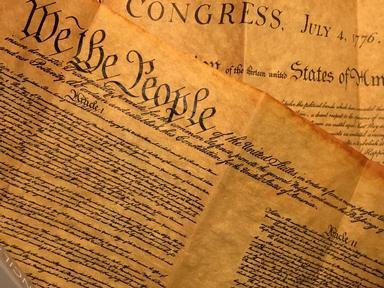Quiz Answer Key and Fun Facts
1. Repealed the 18th Amendment (prohibition on alcohol) and criminalized transportation of alcohol into "dry states"
2. Set a limit on the number of terms the U.S. President can serve in office
3. Prevents members of Congress from passing laws affecting their salaries until the next election takes place
4. Allowed Congress to enact federal and unapportioned income taxes
5. Lays out presidential succession and the procedure to replace the President if they are unable to perform their functions
6. Established new dates for the beginning of presidential, vice-presidential, and Congresspeople's terms in office
7. Transferred power to elect U.S. senators from state legislatures to the people
8. Lowered the voting age from 21 to 18
9. Gave all citizens (in effect women) the right to vote regardless of their sex
10. Gave the District of Columbia electoral votes in the Electoral College (for presidential elections only)
Source: Author
Lpez
This quiz was reviewed by FunTrivia editor
stedman before going online.
Any errors found in FunTrivia content are routinely corrected through our feedback system.
